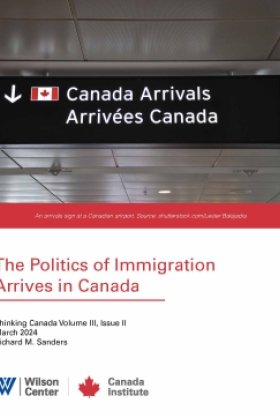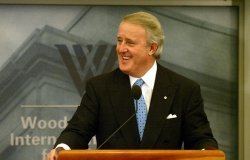Rights and Responsibilities of Citizens in the Age of Obama
Erwin Chemerinsky, founding dean, University of California-Irvine School of Law; the Honorable Frederick P. Aguirre, Superior Court of Orange County; Peter H. Irons, Emeritus Professor of Political Science, University of California-San Diego, and author, Justice Delayed: The Record of the Japanese American Internment Cases
Overview
Erwin Chemerinsky, Founding Dean and Distinguished Professor of Law, University of California, Irvine School of Law, keynote speaker; commentators Frederick P. Aguirre, Superior Court Judge, State of California, and Peter H. Irons, professor of political science emeritus, University of California, San Diego
What are the rights and responsibilities of citizens in the United States? At a time when the president of the nation has called upon Americans to participate actively in their political system, what does history suggest about citizens' rights and obligations? These were the questions addressed at the second in the Taube Discussion Series on American Values, underwritten by the Taube Philanthropies and organized by the Wilson Center's Division of U.S. Studies. It was held at the Hastings College of the Law in San Francisco.
The conception of rights that appears in the American Constitution, keynote speaker Erwin Chemerinsky began, was based on a distrust of government power and a desire to protect the rights that the writers of the Constitution and Bill of Rights considered to have been abused by the English government. Property rights were specifically safeguarded; so were freedom of thought and conscience, rights of those accused of crimes, and privacy and autonomy.
Dean Chemerinsky nonetheless considered the framers' conception of rights to have been inadequate. For one thing, the Constitution does not mention equality. On the contrary, it endorsed slavery. It fails to deal with private centers of power, as opposed to governmental power. For the most part, it focuses on negative liberties–that is, the things that government is not empowered to do–rather than on the government's affirmative duties. It does not indicate what constitutes sufficient justification for the abridgement of rights. The First Amendment, for example, is written as an absolute. It says that "Congress [and by extension, the states] shall make no law...abridging the freedom of speech." The nation has found it necessary to enact laws limiting forms of speech such as libel, child pornography, and incitements to violence, however, in seeming pragmatic contradiction of the constitutional mandate.
Finally, the Constitution does not address the issue of individual responsibilities. This is because government-ordered "responsibilities" are in inherent conflict with "liberties." Without citizen assumption of responsibilities such as obeying the laws, paying taxes, and serving on juries, however, the American system of government could not exist. That raises the question of whether the kind of public service endorsed by President Obama should be made compulsory. Chemerinsky would oppose compulsory public service, believing that government should rely on carrots rather than sticks and, for example, create incentives to public service such as tax credits and tuition forgiveness.
Chemerinsky concluded by predicting that the ideology of the majority of the justices on the Supreme Court will preclude judicial expansion of rights during the next eight years. At the same time, rights may be expanded by Congress, which has recently undone Supreme Court decisions limiting religious freedom and gender equality. The most important developments in the area of rights may nevertheless come from the executive branch, which may reverse the course of the last eight years and respect both checks and balances and the rights of individuals.
Judge Frederick Aguirre emphasized the renewed energy that the Obama campaign and early presidency has brought to communities of color and to American youth. Coupled with the use of the new technologies that were evident during the campaign, this holds the potential for ushering in a new age of citizen participation. Professor Peter Irons agreed with Chemerinsky that the Constitution as written gave too many powers to the federal government and did not adequately protect rights. Recalling challenge of citizens such as Fred Korematsu to the relocation of Japanese-American citizens during World War II, he suggested that a key question about the legitimacy of public policy is what happens to a community when one person or a small group of people object to something the majority believes is necessary. "We are not servants of the state; we are the masters of it," Irons declared. That is a declaration of rights, but the panelists agreed that it also implies the importance of assuming the responsibilities of citizenship.
Thank you for your interest in this event. Please send any feedback or questions to our Events staff.










